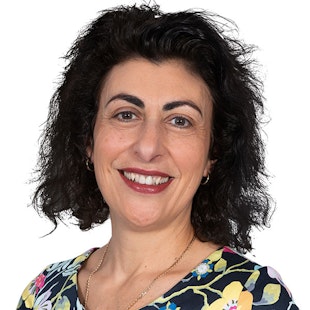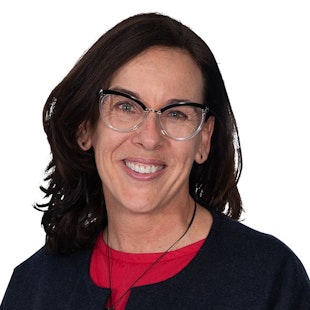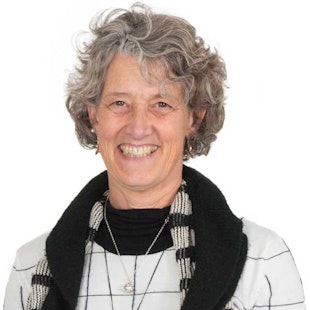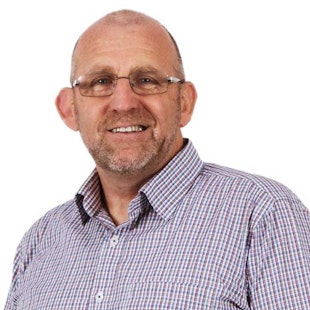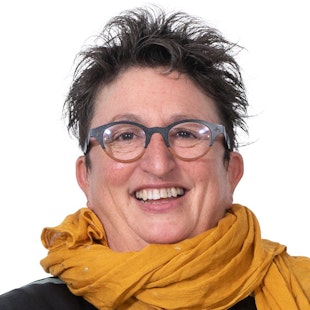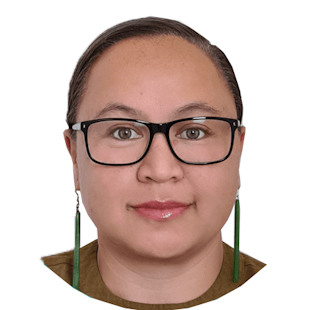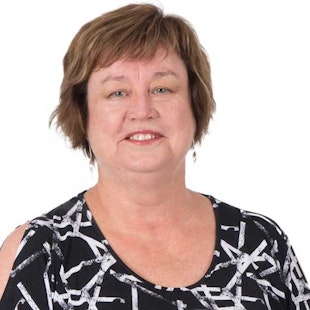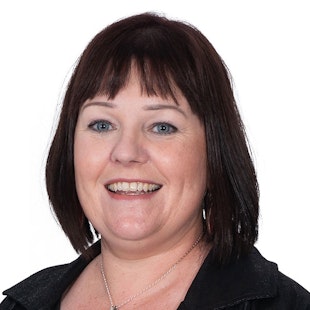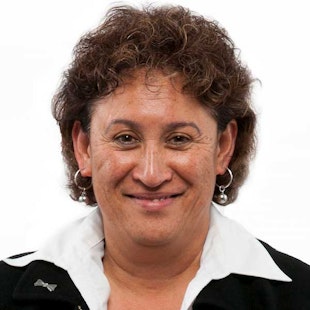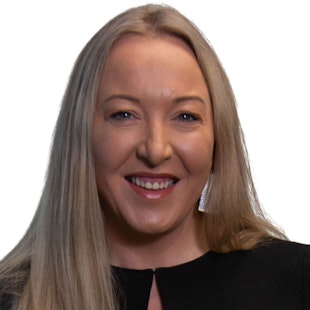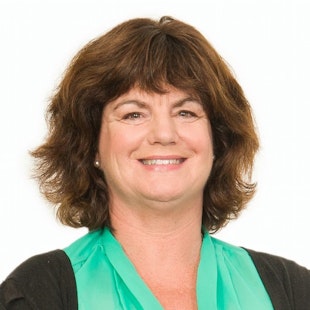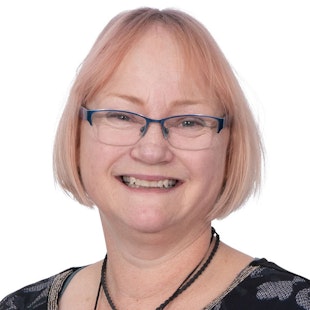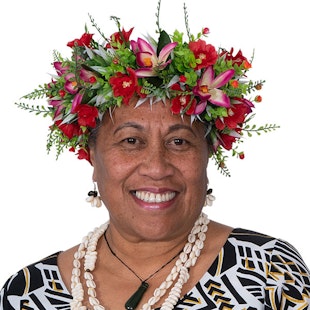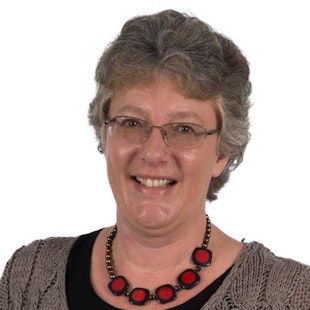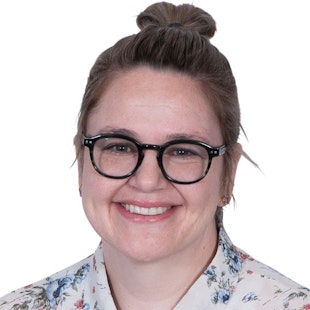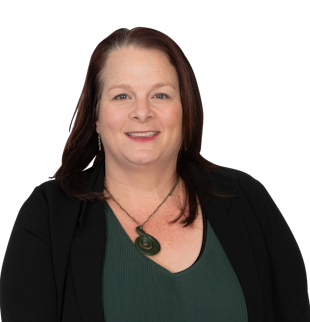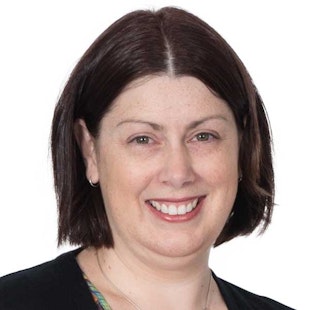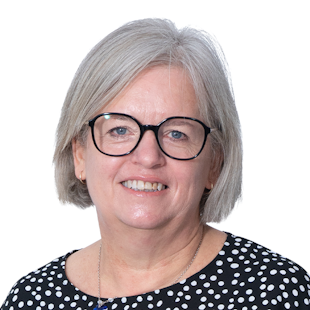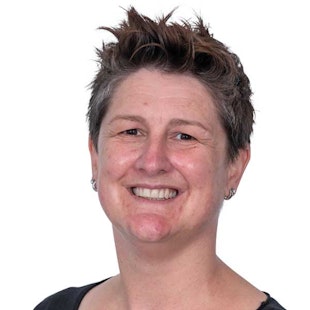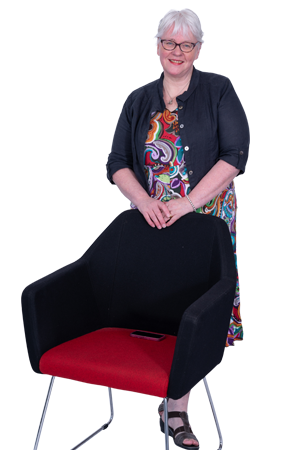
Qualifications
Master of Education - Leadership (With distinction)
Advanced Certificate Infant & Toddler Mental Health
Bachelor of Teaching (Early Childhood)
Certificate Infant & Toddler Mental Health (Commendation)
Diploma Teaching (ECE)
Professional profile
Glenda has been involved in early childhood professional development work for twelve years. Prior to joining Tātai Aho Rau Core Education (then known as CORE Education), she has been engaged in teaching and learning experiences with infants, toddlers, young tamariki and their whānau across rural and urban settings in full day care, and playcentre services from a variety of social and cultural backgrounds for over 20 years.
In Glenda's current role, she engages with kaiako and senior team leaders in group care and home base services in varied settings, facilitating and challenging their pedagogical thinking and beliefs to enable them to make transformative change in their practice. She is currently facilitating the SELO Emerging Leaders programme, and the English medium content writer the Te Whāriki Pacific bilingual learning modules. These projects are contracted by the Ministry of Education.
Glenda has recently been co-facilitator in a research project relating to transition to school for Pacific children and their fānau, and coaching and mentoring ECE leaders. Her recently completed Masters in Education has enabled her to mentor and effectively support others in their leadership journey through respectful and reciprocal relationships that reflect a broad and inclusive approach to teaching and learning.
Expertise
Glenda has broad experience in developing and facilitating professional learning programmes through face-to-face and online workshops for kaiako, parents and a range of other professional groups. She has developed a strong understanding of her own cultural intelligence and can competently support others to strengthen theirs.
Recent projects have included co-facilitating workshops in the SELO Leadership programme, to enhance leadership knowledge and to strengthen culturally-responsive teaching practices. Other projects include Lead Facilitator roles in SELO 3 programmes; Te Aho Tukutuku Mathematics and Infants and Toddlers.
Glenda has in-depth knowledge of Te Whāriki, 2017 as she was involved in professional learning and in the implementation of this revised document through the Matika Maranga- A Call to Action Professional Learning project via both face to face and online facilitated sessions. She also has been closely engaged in and contributing to audits and recent updating of the Te Whāriki Online content and resources.
Focus areas include environments and transitions, wellbeing, belonging, agency and inclusion, respectful, responsive and reciprocal practices, inclusive practices of culturally diverse pedagogies, and social emotional competence with kaiako from a range of services across the South Island.
Glenda has thorough knowledge of Te Whāriki, 2017 Ka Hikitia, the Pasifika Education Plan, Te Whāriki, 2017, Kei Tua o te Pae, Tātaiako, Tapasā, Te Whatu Pōkeka, NELP’s, Assessment and Planning.
Personal statement
I am passionate about ensuring that all tamariki are able to be successful in their learning. I believe that all kaiako must take the responsibility to be culturally responsive with the diverse learners we have in New Zealand today.
I am passionate about understanding the context and cultural identity of children and families, in particular those from of ‘minoritised’ groups, to ensure their own values and expectations are not lost within the dominant culture of the communities they live in. I prioritise the importance of kaiako recognition of a true partnership with whānau. Another key interest is to ensure a sense of belonging and wellbeing is established and maintained for kaiako, tamariki, and their whānau as they engage in partnership within their learning communities.
When we open our minds and our hearts to new opportunities for learning through a professional lens, we are better equipped to facilitate these skills with other learners. It is a privilege to be able to support and mentor other educators as they identify and work towards their own learning goals. By sharing my knowledge and experiences in my early childhood career, my goal is to empower other educators to achieve and discover their own passions and aspirations with children and their whānau.
I love spending time with my family, grandchildren and friends, having fun, learning to appreciate art, participating in walking adventures, reading, and watching movies and enjoying painting with water colours and acrylics.
